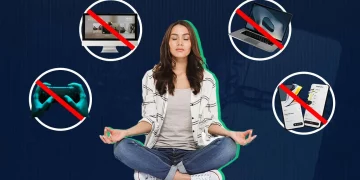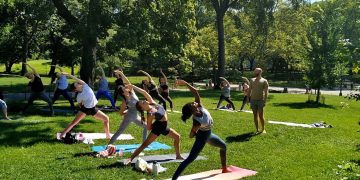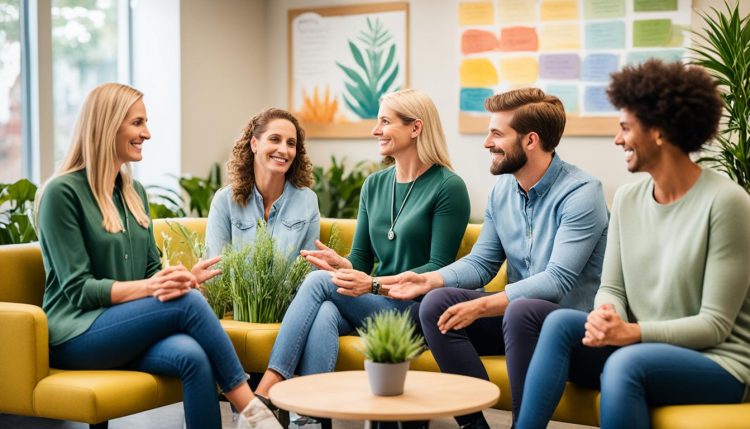The feeling is one of the most universal yet isolating human experiences: the profound conviction that you are utterly alone. It whispers that no one could possibly understand the turmoil in your mind, the weight on your chest, or the static filling your thoughts. This sense of isolation is not merely a symptom of mental health challenges like depression, anxiety, or trauma; it is a potent fuel that intensifies them. It breeds shame, telling you that your struggles are a personal failing to be hidden away. In a world that often prioritizes curated perfection over raw authenticity, admitting to not being okay can feel like breaking an unspoken social contract.
But what if this foundational feeling—this certainty of being alone in your suffering—is the single greatest lie your mind can tell you? What if the most powerful antidote to the pain isn’t just found in solitary reflection, meditation, or even a therapist’s office (as vital as that can be), but in the courageous, messy, and transformative space of shared experience? The journey toward mental wellness is often portrayed as a solitary trek up a mountain. In reality, it is a path walked by millions, and healing is found in the moments we reach out, share our maps, and walk together. Community is not a distraction from the work of healing; it is an essential part of the medicine itself.
The Alchemy of Shared Experience: How Stories Dissolve Shame
There is a unique and powerful magic that occurs when someone finally voices a fear they have held in the dark for years, only to be met with the three most healing words in any language: “Me too.” This is the core mechanism of support groups, group therapy, and mental health communities. It is the process of externalization—taking the internal monster of suffering and bringing it out into the light, where others can help you see its true shape and size, which is almost always smaller than it seemed in the solitude of your own mind.
Shame thrives in secrecy. It convinces you that you are the only one who has ever felt this way, done this thing, or had this thought. By hearing others share stories that mirror your own, shame begins to lose its power. You realize that your experience is not a bizarre anomaly; it is a human response to pain, stress, or biology. This normalization is profoundly liberating. It shifts the internal narrative from “There is something wrong with me” to “I am experiencing something that humans do.”
Furthermore, these communities foster radical empathy. It is one thing for a therapist to tell you your feelings are valid. It is another thing entirely to hear it from someone who has been in the exact same trench, who knows the texture of the mud and the pattern of the shadows. This peer-based validation carries a unique weight and credibility. It also works in reverse: offering support to another person who is struggling can be incredibly therapeutic. It helps you reframe your own story as one of experience and strength, allows you to practice self-compassion by extending it to others, and provides a sense of purpose and value that depression often strips away.
Finding Your Tribe: Navigating Online and In-Person Sanctuaries
The quest for community no longer requires walking into a church basement on a Tuesday night (though that remains a valuable option for many). Today, support exists on a spectrum from fully virtual to deeply personal, each with its own unique benefits and considerations.
In-Person Communities (Support Groups, Group Therapy, Clubhouses):
- Benefits: The primary advantage is the richness of human presence. Non-verbal communication—a comforting hand on a shoulder, the empathetic look in someone’s eye, the shared silence that isn’t awkward but supportive—adds a layer of connection that is difficult to replicate online. There is a profound accountability and consistency in showing up to a physical space with the same group of people. Organizations like the National Alliance on Mental Illness (NAMI) and Anxiety and Depression Association of America (ADAA) offer nationwide networks of free support groups, while Recovery International and Smart Recovery provide structured, peer-led meetings for specific challenges.
- Considerations: It requires a higher level of initial courage to walk into a room of strangers. Accessibility can be an issue based on location, transportation, or physical ability. For those with social anxiety, the idea can be daunting, though often ultimately rewarding.

Online Communities (Forums, Social Media Groups, Chat Platforms):
- Benefits: Accessibility is the greatest strength. Support is available 24/7 from anywhere in the world, at the exact moment you need it. The anonymity and distance can make it easier for people to be brutally honest about their struggles without fear of judgment from their immediate social circle. It allows you to find incredibly niche communities for specific, rare, or highly stigmatized conditions where finding an in-person group would be nearly impossible. Platforms like 7 Cups offer free, anonymous listening services.
- Considerations: The lack of physical presence can sometimes feel less tangible. The anonymity that enables honesty can also, in unmoderated spaces, enable trolls and harmful behavior. It is crucial to vet online communities for a positive and supportive culture.
Navigating Digital Spaces with Wisdom: A Guide to Safe Engagement
While online communities offer a lifeline, it’s essential to engage with them mindfully to protect your own mental health.
- Seek Out Moderated Spaces: Prioritize communities that have active moderators who enforce clear rules against bullying, unsolicited advice, and harmful language. Look for forums that promote support and sharing rather than competition over who is “sickest” or “most traumatized” (a dynamic sometimes called the “Oppression Olympics”).
- You Are the Curator of Your Feed: Your online space should feel like a sanctuary. If a particular group or individual consistently makes you feel worse, anxious, or triggered, leave or mute them without a second thought. You owe no one an explanation for protecting your peace.
- Boundaries are Everything: Be mindful of how much emotional labor you take on. It is beautiful to support others, but you are not their therapist. It is okay to disengage if someone is draining your energy or placing inappropriate demands on you. Practice using phrases like, “I’m so sorry you’re going through that, but I don’t feel equipped to give you the advice you need.”
- Remember: Advice vs. Experience: The golden rule of peer support is to share what worked for you, not to prescribe what someone else must do. Avoid definitive “you should” statements. Instead, try “Something that helped me was…” or “Have you ever considered talking to a doctor about that?” Never discontinue medication or try a new treatment based solely on online advice; always consult a medical professional.
- Protect Your Privacy: Be cautious about sharing personally identifiable information like your full name, address, or specific workplace. Use a username that isn’t used on your other social profiles.
Your Invitation to Connection: You Are Welcome Here
The feeling of isolation is a formidable opponent, but it is a lie. A vast network of understanding and support exists, waiting for you to find your place within it. You don’t have to white-knuckle your way through your mental health journey alone. Healing happens in connection.
We extend a specific and heartfelt invitation to you. If you are seeking a safe, moderated, and compassionate space to share your experiences, ask questions, or simply listen, we encourage you to visit the RadiantLifeBridge mental health forum. Our community is built on a foundation of respect, empathy, and mutual support, with active moderators ensuring it remains a sanctuary for all. It is a place to find your “me too” moments, to offer a word of encouragement to someone else, and to remember that your story matters.
Take that first, brave step out of isolation. Your community is waiting.

































